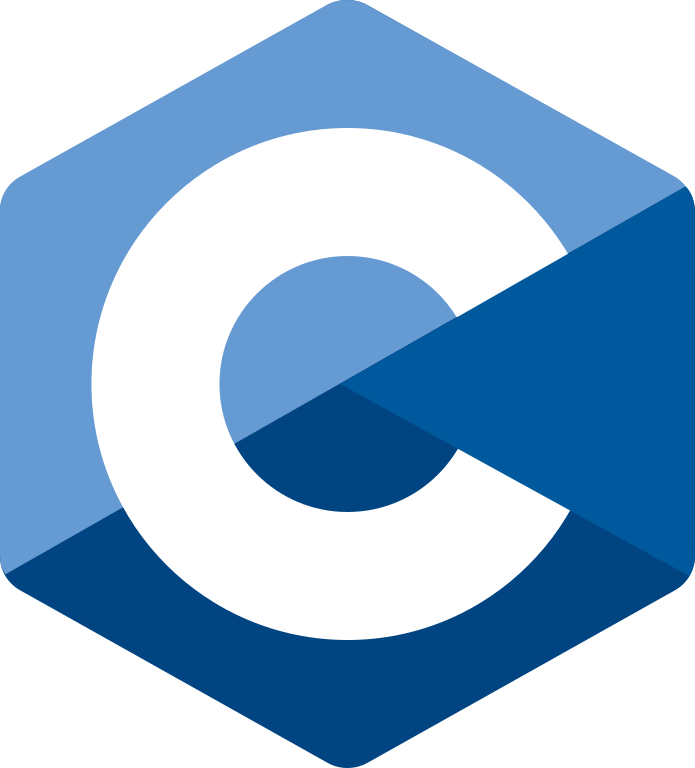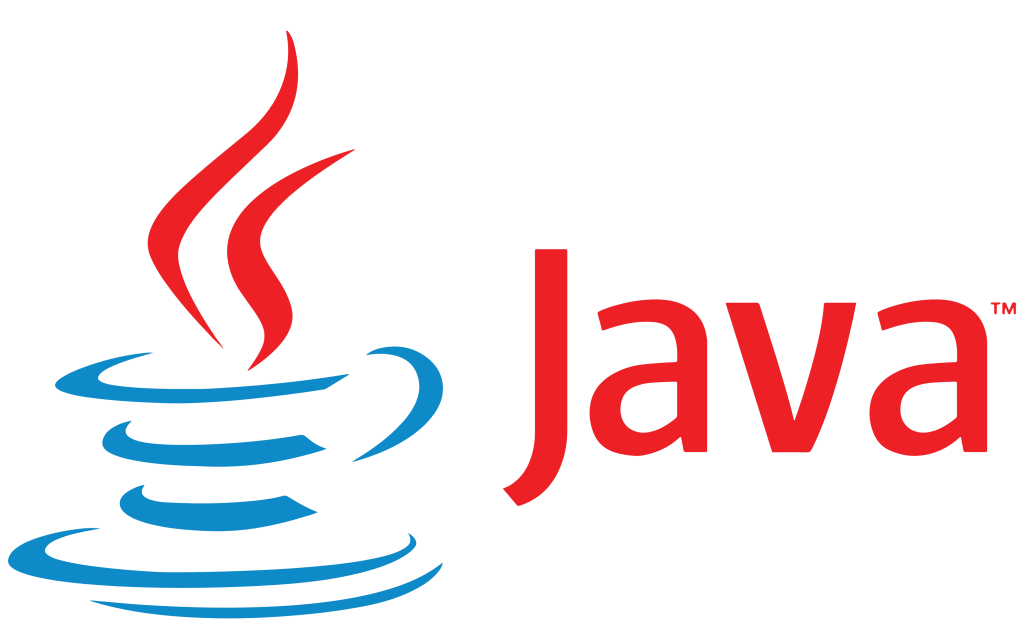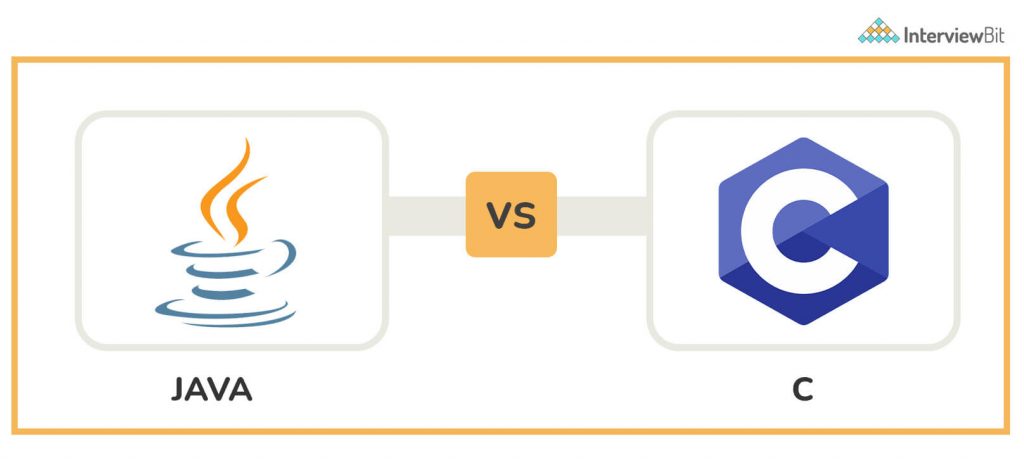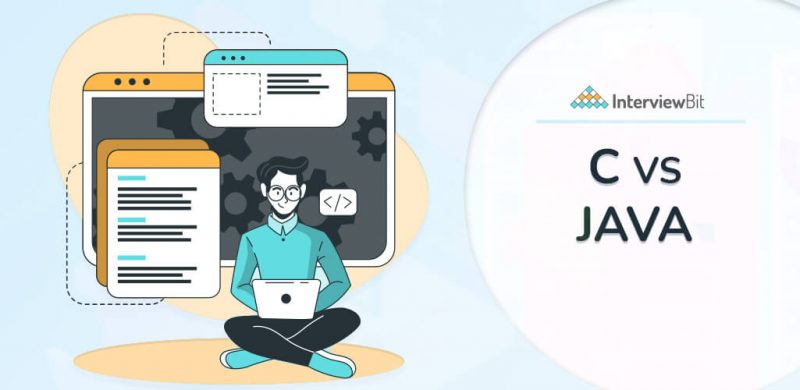Two programming languages, which have shaped the way in which human beings look at coding in general and development, in particular, are none other than C and Java. On one hand, where C is one of the earliest languages that had been developed and has served as the foundations of the development of a lot of other programming languages like Python, C++, C#, etc. Java is amongst the most diverse and popular languages because of the robustness and plethora of features it has to offer. Therefore, it would be very much in the interests of almost all coding enthusiasts to learn about the differences between these two superb programming languages, C and Java. Let us first take some time in understanding both these languages one at a time.
Introduction to C

One of the oldest general-purpose programming languages of all time, C was developed at Bell Labs by Dennis Ritchie between the years 1972 and 1973. C was developed to construct utilities running on Unix and was applied to re-implement the kernel of the Unix operating system.
In today’s world, C finds its application in the development of firmware and portable systems. C supports a plethora of features like structured programming, lexical variable scope, and recursion, with a static type system, etc. C is also known as a middle-level language as it combines the features of both high-level languages and low-level languages.
Confused about your next job?
Key Features of C
Let us now take a look at some of the key features of C
- C is a structured programming language that is extremely easy to learn.
- It is an efficient programming language, that is, it is fast and has very good performance.
- C is a highly portable and extensible programming language because it is not tied to any hardware or system. Any code written in C can be run on any machine which supports C, without modifying a single line of code.
- C has a rich set of built-in Operators and libraries with functions.
- C is modular and statically typed.
View More Features of C
Introduction to Java

Originally developed by James Gosling at Sun Microsystems, which is now acquired by Oracle, Java is one of the most diverse languages of today’s time. Used by hundreds of Software Companies and millions of developers all around the globe, Java has become the most popular language which is used to build software applications to solve real-world problems.
Java is a high-level object-oriented programming language that is designed to have as few implementation dependencies as possible. Java supports the feature of WORA – Write Once Read Anywhere. In other words, compiled Java code can run on all platforms that support Java without the need for recompilation.
Java also has support for a lot of features that enhance a developer’s capabilities to develop scalable applications. Special classes like Applets, Servlets, JavaServer Pages, etc. make the development of applications easier. Also, Java has a lot of frameworks built on top of it like Spring, Dagger, etc. which helps developers to work seamlessly.
Key Features of Java
Let us now take a look at some of the key features of Java:-
- One of the most interesting and important features which Java supports is the WORA – Write Once Run Anywhere – feature. Once compiled, Java code can be run on any computing platform. For example, if a Java code has been written on a MAC Operating System, the same Java code can be run on a Windows Operating System without any trouble if the Windows Operating System has JVM (Java Virtual Machine) installed on it.
- Java is purely an Object-Oriented-Programming Language, that is, all Java codes are always written in the form of classes and objects.
- Java is a multithreaded language with automatic memory management. It has great features for garbage collection and is heavily used for distributed computing because of its network-centricity.
- Java is dynamic and extensible.
- Java is also secure and robust.
View More Features of Java
Differences Between C and Java

| COMPARISON PARAMETER | C | Java |
|---|---|---|
| Developed by | The C programming language was developed by Dennis M. Ritchie in 1972. | Java was developed by James Gosling at Sun Microsystems. Now, it is owned by Oracle. |
| Programming model | C is a procedural programming language | Java is an object-oriented programming language. |
| Platform dependence | C is platform-dependent. It is based on the concept of Write Once Compile Anywhere. | Java is platform-independent. It is based on the concept of Write Once Run Anywhere. |
| Type of language | C is a middle-level language as it binds the bridges between machine-level and high-level languages. | Java is a high-level language as the translation of Java code takes place into machine language, using a compiler or interpreter. |
| Compilation and Interpretation | C is only compiled and not interpreted. | Java is both compiled and interpreted. |
| Pointers | C has support for pointers. | Java does not support pointers. |
| Threading | C is not intrinsically a multithreaded language; however, there are many libraries that add threading functionality. | Java supports threading. |
| Garbage Collection | In C, Garbage Collection needs to be done manually. | In Java, Garbage Collector automatically does the Garbage Collection. |
| Memory Allocation | In order to do memory allocation in C, functions like malloc(), calloc(), etc. can be used. But there is no ‘new’ keyword in C. | In order to do memory allocation in Java, the ‘new’ keyword can be used. |
| Support for call by reference | C has support for both call by value and call by reference. | Java has support for the only call by value. |
| Application | The C programming language is used for both system programming as well as Application programming. | Java can be used only for Application programming and not for system programming. |
| Functional Units | In C, mostly the functional units are functions as it is a procedural programming language. | In Java, mostly the functional units are objects as it is an object-oriented programming language. |
| Keywords | There are about thirty-two keywords in C. | There are about fifty keywords in Java. |
| Security | C is a less secure programming language than Java. | Java is comparatively more secure than C. |
| File Extension | C codes are stored with the .c file extension. | Java codes are stored with the .java file extension. |
| Exception Handling | C does not provide the features of Exception Handling. | Java does provide the features of Exception Handling using the ‘try’, ‘catch’, ‘final’, etc. keywords. |
| Approach of programming | C follows a top-down approach. | Java follows a bottom-up approach. |
| Portability | C is not portable. | Java is a portable programming language. |
| Robustness | C is not a robust programming language. | Java is a robust programming language as it has strong memory management schemes. |
Pros and Cons of C
Let us now take a look at some of the advantages of using C as a programming language:-
- C is a procedure-oriented programming language that offers a high-speed compilation.
- The C language is extremely easy to understand as its syntax is very simple.
- It has support for a lot of built-in libraries.
- C is an open-source language that has the quality to extend itself. It is very much possible to extend C in the same way with preprocessors like GCC or Clang which can generate code from a file that will take care of things automatically.
- C codes can be easily extended.
Let us now take a look at some of the disadvantages of using C as a programming language:-
- One of the drawbacks of C is that it does not support Object-Oriented Programming.
- C does not support run-time polymorphism.
- There is no concept of automatic garbage collection in C. Garbage Collection in C is done manually.
- C is somewhat a small and core machine language that offers minimum data hiding and exclusive visibility. This has a major impact on the security of this language.
- Since C is only compiled and is not interpreted, errors or bugs cannot be detected after every line of code.
Pros and Cons of Java
Let us now take a look at some of the advantages of using Java as a programming language:-
- Java supports Object Oriented Programming which makes it extremely desirable for developers looking to build software products to solve real-world problems.
- Java is a diverse language with the tremendous support of built-in classes and libraries which can be used for a lot of scenarios.
- Java is network-centric and therefore, it can be used to build distributed systems.
- Java supports multithreading which allows developers to run a code on multiple threads at once, hence increasing the performance of the system.
- Java has a big community of developers along with some amazing, well-written documentation which can be very handy for the budding programmers of today.
Let us now take a look at some of the disadvantages of using Java as a programming language:-
- Java is both compiled and interpreted because of which it is relatively slow to other languages like C, C++, etc.
- Due to its high memory and processing requirements, Java’s hardware cost increases a lot.
- Java does not support a lot of low-lying features supported by C, C++ like pointers, etc.
C/Java: Which one is better?
One of the most natural questions which might arise in the minds of coders studying these two languages is which out of the two is better? In order to answer this question, one needs to ask himself or herself what his or her use case is. If the programming language needs to give better performance and has to be used in systems where high speed and performance are of utmost value, then probably C is a better choice than Java.
However, for most use cases of building Software Products or Distributed Systems, Java most certainly serves as the better option because of its rich libraries and the plethora of features it has to offer. Hence, C vs Java, which is better? is really a question that can be answered only when the use case or scenario of use is clear.
Conclusion
So, in conclusion, we would like to mention that both the languages, C and Java, are used by a plethora of big Software Companies, and therefore, learning both of them could prove to be extremely useful. For budding coders of today who are looking forward to taking a job in the Software Industry, or already have a Software Engineering Job, it is better to learn more about Java because of the diversity and flexibility it provides. However, for people looking to work on building firmware systems, gaming engines, etc. where high performance is needed, C can certainly prove to be a better choice of a programming language than Java as it is way faster than Java.
Frequently Asked Questions(FAQs)
Is Java based on C?
Yes, the syntax of Java is heavily influenced by the syntax of both C and C++.
Why is C still used?
C is extremely valuable and relevant even today because of its closeness to the hardware, great portability, and deterministic usage of resources. This makes C a high-speed and high-performance language, and thus, it is ideal for low-level development such as developing operating systems, kernels, and embedded software.
Which is harder, C or Java?
When writing small programs C is an easy language to use. But when developing applications, Java is easier to use because of libraries, etc. which Java provides. LOCs for fairly complex applications will always be more in C than Java




